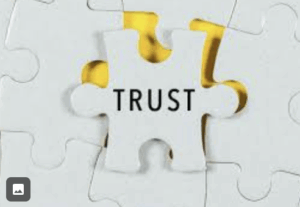Bipolar disorder is often associated with extreme highs (mania) and deep lows (depression), but the reality is more complex—especially in young adults. While mood swings are a key feature, many people experience less obvious symptoms that can go unnoticed or be mistaken for other mental health issues.
Since bipolar disorder often first appears in late teens and early adulthood, recognizing these less common signs is crucial for early diagnosis and effective treatment. In this post, we’ll explore both the typical and lesser-known symptoms of bipolar disorder, how it affects daily life, and when to seek help.
Understanding Bipolar Disorder in Young Adults
Bipolar disorder involves episodes of mania (or hypomania) and depression, which can last for days, weeks, or even months. There are two main types:
✔️ Bipolar I Disorder – Involves full manic episodes that can be severe and require hospitalization, along with depressive episodes.
✔️ Bipolar II Disorder – Involves hypomanic episodes (less extreme than full mania) and depressive episodes.
Young adults may not always experience textbook symptoms, making it harder to recognize and diagnose. Let’s look at both common and uncommon symptoms.
Common Symptoms of Bipolar Disorder
While no two people experience bipolar disorder the same way, there are core symptoms that most individuals will encounter:
Manic or Hypomanic Symptoms (High Energy Episodes):
🚀 Extreme bursts of energy and confidence
🗣️ Talking fast or jumping between ideas rapidly
🌙 Sleeping very little but still feeling energized
🎭 Impulsive or risky behavior (overspending, reckless driving, substance use, unsafe sex)
😡 Increased irritability or agitation
Depressive Symptoms (Low Energy Episodes):
😞 Feeling deeply sad, empty, or hopeless
🛏️ Extreme fatigue and lack of motivation
🤔 Difficulty concentrating or making decisions
🙅♂️ Avoiding friends, family, or responsibilities
💭 Thoughts of self-harm or suicide (seek immediate help if this happens)
🔗 If you’re struggling with mood swings, our individual therapy services can help you understand what’s happening and find coping strategies.
Less Common (But Important) Symptoms to Watch For
Beyond the well-known symptoms, bipolar disorder can present in surprising ways, which often leads to misdiagnosis or delayed treatment.
Unusual Symptoms of Manic or Hypomanic Episodes:
🖌️ Sudden bursts of creativity – Feeling overwhelmed with new ideas for art, music, writing, or projects, sometimes staying up all night to work on them.
🛍️ Obsessive goal-setting – Setting grand, unrealistic goals (starting multiple businesses, planning huge life changes overnight) without considering long-term consequences.
🎵 Hearing music or voices in your head (not hallucinations) – Some people experience enhanced sensory perception, like hearing background music in their minds.
💡 Feeling invincible or disconnected from reality – Believing you have special powers, a higher purpose, or unique abilities beyond what’s realistic.
👂 Increased sensitivity to sound, touch, or light – Feeling overwhelmed by loud noises, bright lights, or texturesduring manic episodes.
Unusual Symptoms of Depressive Episodes:
😑 Emotional numbness or lack of response – Instead of sadness, some people feel completely empty or disconnected from emotions.
🦴 Unexplained physical pain – Body aches, migraines, or stomach issues without a medical cause, often linked to mental health struggles.
🔄 Rapid mood cycling – Instead of weeks-long episodes, some people experience mood shifts within a single day or week (known as rapid cycling).
🛑 Irritability instead of sadness – Some young adults feel angry, short-tempered, or easily annoyed rather than sad during depressive episodes.
💤 Oversleeping and extreme lethargy – Sleeping 12+ hours a day but still feeling exhausted, struggling to get out of bed.
🔗 If you experience any of these symptoms, speaking with a licensed therapist can help clarify what’s going on.
Bipolar Disorder vs. Other Mental Health Conditions
Because the symptoms of bipolar disorder overlap with other mental health conditions, it’s often misdiagnosed as:
🔸 Depression – If someone only seeks help during depressive episodes, they may be diagnosed with major depressive disorder instead of bipolar disorder.
🔸 ADHD – Impulsivity, distractibility, and high energy in mania can look like ADHD symptoms.
🔸 Anxiety Disorders – Racing thoughts and restlessness can resemble generalized anxiety disorder or panic disorder.
🔸 Borderline Personality Disorder (BPD) – Intense emotions and mood swings can mimic BPD, but bipolar episodes last longer than BPD mood shifts.
A mental health professional can help differentiate between these conditions by tracking mood patterns over time.
How Bipolar Disorder Affects Young Adults
Untreated bipolar disorder can impact key areas of life, such as:
🎓 School & Work: Inconsistent energy levels can disrupt concentration, attendance, and academic performance.
💔 Relationships: Mood swings may lead to conflict, miscommunication, or emotional withdrawal.
💵 Finances: Impulsive spending during manic episodes can cause financial problems or debt.
🍷 Substance Use: Some people use alcohol or drugs to manage symptoms, which can worsen mood swings.
The good news? Bipolar disorder is treatable, and many young adults learn to manage their symptoms and lead fulfilling lives.
Treatment and Coping Strategies
If you or someone you love is experiencing symptoms of bipolar disorder, help is available.
Effective Treatment Options:
✔️ Therapy (Cognitive Behavioral Therapy, Dialectical Behavior Therapy, and Psychoeducation) – Helps with emotional regulation and coping skills.
✔️ Medication (Mood Stabilizers, Antipsychotics, or Antidepressants in Some Cases) – Can balance mood fluctuations.
✔️ Lifestyle Changes (Sleep, Nutrition, and Stress Management) – Helps stabilize energy levels and mood.
Daily Coping Strategies:
✅ Stick to a Routine – Consistent sleep and daily habits help manage mood swings.
✅ Track Mood Patterns – Keeping a journal can help identify triggers and early warning signs.
✅ Limit Stimulants & Alcohol – Caffeine, alcohol, and drugs can worsen symptoms.
✅ Stay Connected – Having a support system (friends, family, therapist) can help when emotions feel overwhelming.
🔗 Need support? Our therapy services can provide guidance.
When to Seek Help
🚩 Your moods feel out of control or unpredictable.
🚩 You engage in risky or impulsive behaviors that you later regret.
🚩 You feel hopeless, overwhelmed, or disconnected from life.
🚩 You have thoughts of self-harm or suicide (seek immediate help).
If you or a loved one is in crisis, call the Suicide & Crisis Lifeline at 988 or seek professional help immediately.
Final Thoughts: You Are Not Alone
Bipolar disorder can feel overwhelming, but with the right support, young adults can lead fulfilling, stable lives. If you recognize these symptoms in yourself or someone you love, seeking help is the first step toward balance and well-being.
👉 Looking for guidance? Schedule an appointment today.
✨ Your mental health matters, and help is available. ✨







